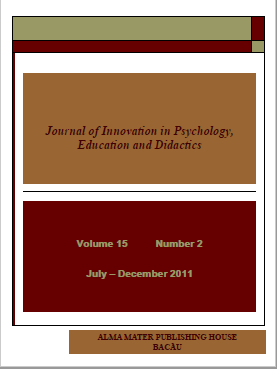IMPLICATIONS OF PERCEPTIVE AND PHONETIC GAMES UPON VOCABULARY DEVELOPMENT IN PRE-SCHOOL AGE
IMPLICATIONS OF PERCEPTIVE AND PHONETIC GAMES UPON VOCABULARY DEVELOPMENT IN PRE-SCHOOL AGE
Author(s): Claudia Stoica, Liliana MâțaSubject(s): Phonetics / Phonology, Preschool education, Educational Psychology
Published by: Editura Alma Mater
Keywords: perceptive and phonetic games; pre-school age; pedagogical experiment; vocabulary development;
Summary/Abstract: The purpose of this study is to highlight the role of perceptive and phonetic games in the development of the vocabulary of pre-school children. These games contribute to differentiate sounds phonetically and perceptively and to pronounce them correctly during teaching language activities, determining a dynamic reception of contents in kindergarten. The research method used is the pedagogical experiment of an ascertaining and formative type. The outcomes, after implementing perceptive and phonetic games, indicate that a progress regarding the correct pronunciation of words without omissions or inversions of sound groups and a progress obtained in vocabulary, regarding perceptive and phonetic elements. The integration of the perceptive and phonetic games in language educating classes led to the achievement of some real progress in what concerns pre-school children’s ability to correctly pronounce sounds, groups of sounds and whole words.
Journal: Journal of Innovation in Psychology, Education and Didactics
- Issue Year: 15/2011
- Issue No: 2
- Page Range: 89-96
- Page Count: 8
- Language: English

